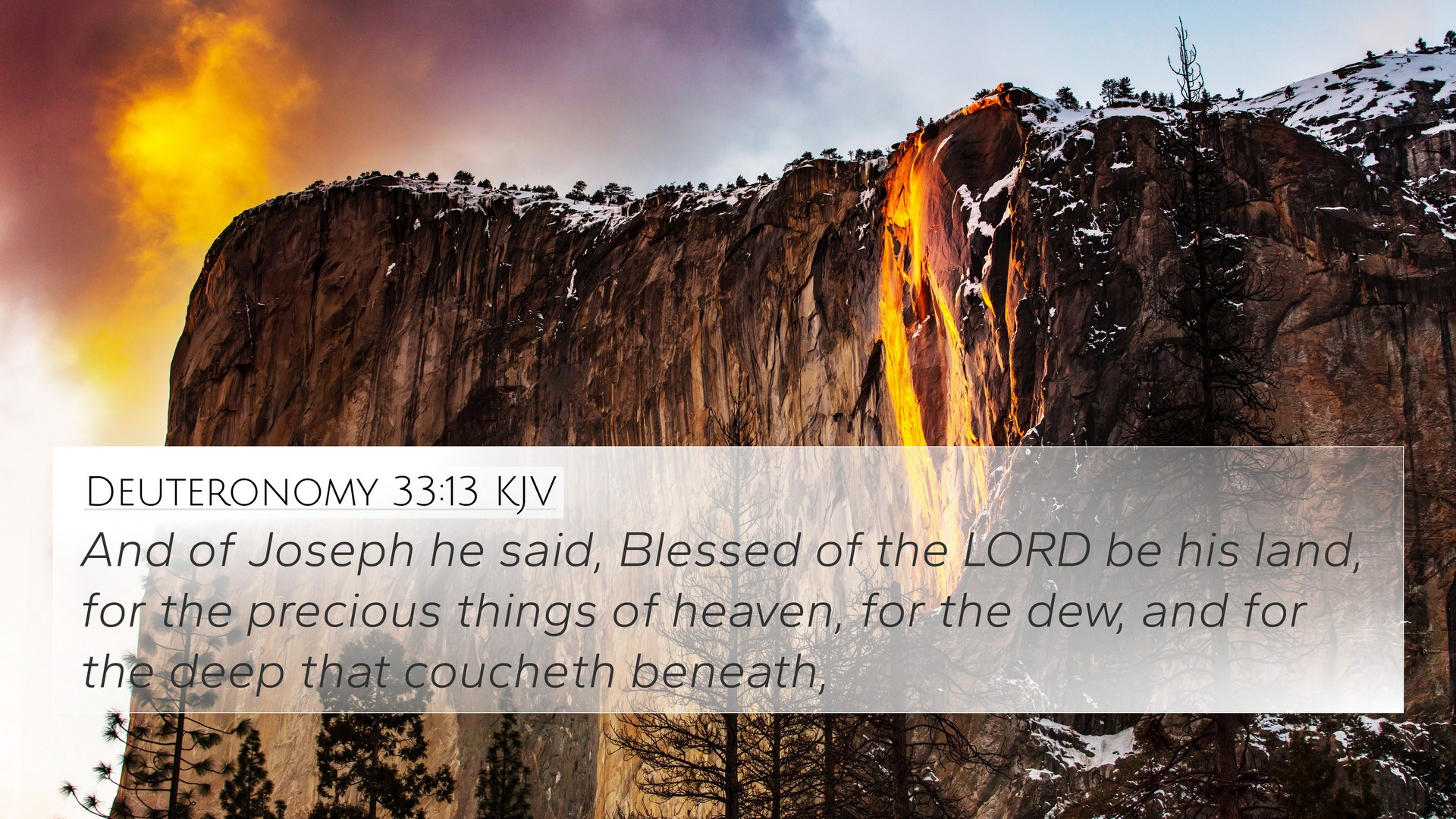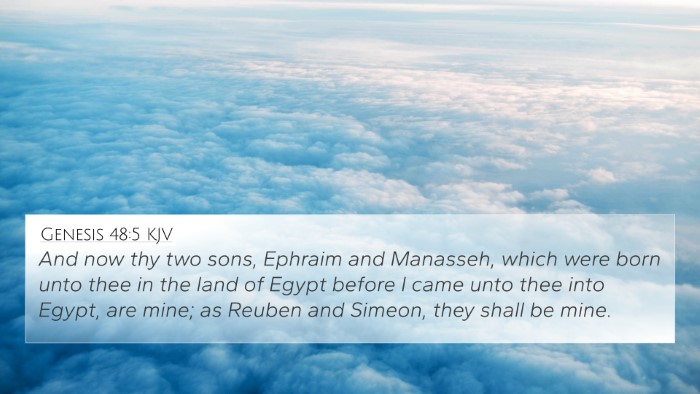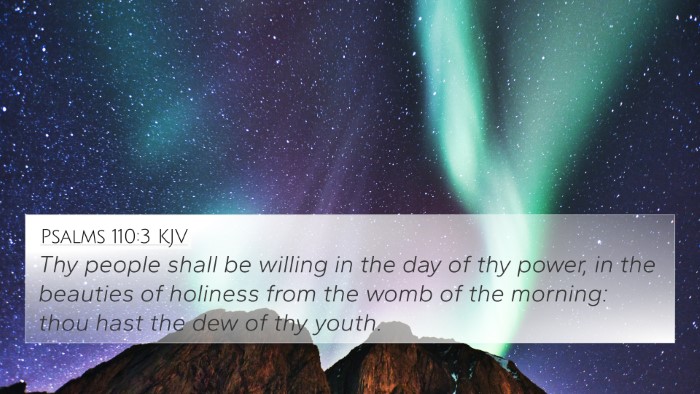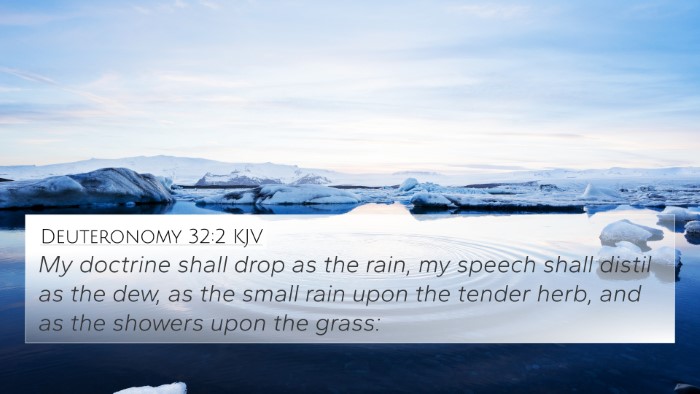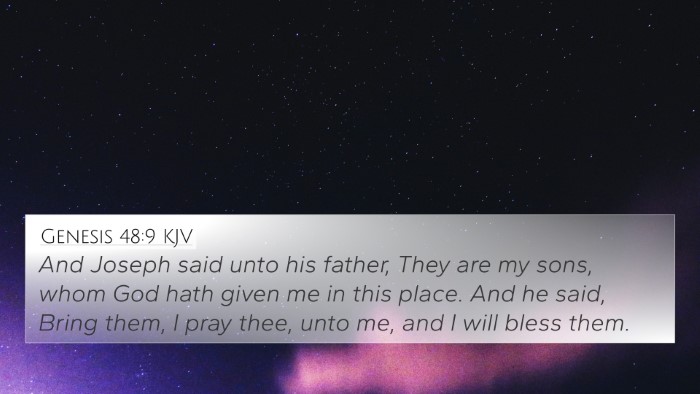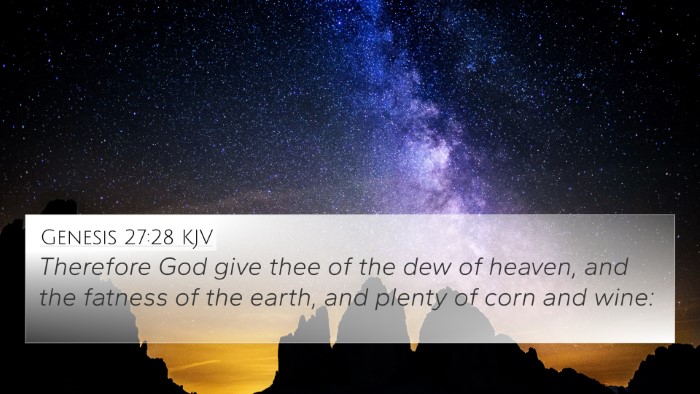Understanding Deuteronomy 33:13
Deuteronomy 33:13 states, "And of Joseph he said, Blessed of the Lord be his land, for the precious things of heaven, for the dew, and for the deep that coucheth beneath." This verse is an important part of Moses' blessing to the tribes of Israel, particularly focusing on Joseph's descendants.
Meaning and Significance
The verse emphasizes the bountiful blessings bestowed upon the land of Joseph. It highlights the prosperity and abundance that God has promised, reflecting on divine provisions that come from both heaven and earth.
- Moses' Blessings: The chapter contains blessings Moses imparts to each tribe. This highlights the importance of recognizing God’s favor and guidance in Israel’s future.
- Joseph's Inheritance: Joseph is given a prominent mention due to the blessings on his sons, Ephraim and Manasseh, who became major tribes in Israel.
- Symbolism of Abundance: Terms like "precious things of heaven" and "dew" symbolize spiritual and material abundance, suggesting that God's blessings cover every aspect of life.
Connections Between Bible Verses
Understanding Deuteronomy 33:13 can be enriched by examining its connections to other scripture. Here are important cross-references:
- Genesis 49:22-26: Jacob's blessing on Joseph, emphasizing productivity and favor from God.
- Genesis 48:14-20: The placing of hands during blessing demonstrates the significance of Joseph’s lineage.
- Psalm 105:23-24: God's blessing on Israel during Joseph's time in Egypt indicates continual divine favor.
- Matthew 2:15: The prophetic connection of Joseph in the New Testament reinforces the theme of divine protection and blessing.
- Romans 11:17: The inclusion of the Gentiles in God's blessings can be compared to Joseph’s fruitful land.
- Acts 7:9-10: This passage speaks of Joseph’s favor with God, which aligns with the blessings mentioned in Deuteronomy.
- Joshua 17:14-18: Further clarification on Joseph's inheritance and his tribes' claim in the Promised Land.
Inter-Biblical Dialogue
This verse narrates a vivid portrayal of God's provision and care. The blessings described here have profound theological implications, as they establish a pattern of God's provision through generations. Moses emphasizes that God's blessings come from both the heavens and the earth, indicating a holistic approach to divine provision.
Comparative Bible Verse Analysis
When comparing this verse with others, several themes emerge:
- Divine Favor: Both Deuteronomy 33:13 and Genesis 49 highlight the favor Joseph receives, giving insight into God's plans for his lineage.
- Abundance and Blessings: There is a consistent theme throughout Scripture where God’s blessings produce abundance, seen in the parallels with Psalm 1:3 and Exodus 34:26.
- Geographical Significance: The mention of “the dew” and “the deep” in Deuteronomy connects to the significance of land in promises made to the Israelites throughout the Old Testament.
Thematic Bible Verse Connections
Through cross-referencing Biblical texts, we notice that:
- Thematic Blessings: Deuteronomy 28 provides broader themes of blessings and curses, expanding on the foundation laid in 33:13.
- God’s Faithfulness: These blessings reaffirm God’s faithfulness, reflected in Lamentations 3:22-23, highlighting His mercies and steadfastness.
Tools for Bible Cross-Referencing
As you study Deuteronomy 33:13, consider using resources such as:
- Bible Concordance: A comprehensive concordance will help identify key words and identify patterns across Scripture.
- Bible Cross-Reference Guide: This can provide tools for connecting verses and themes throughout the Bible.
- Bible Chain References: This technique can guide studies on how verses interlink, enhancing understanding of Biblical narratives.
Conclusion
Deuteronomy 33:13 is rich with significance. By exploring its meaning alongside other relevant scriptures, you can cultivate a deeper appreciation for the ways God blesses His people. Recognizing connections between Bible verses and employing analytical tools can greatly enhance one’s Bible study experience.
